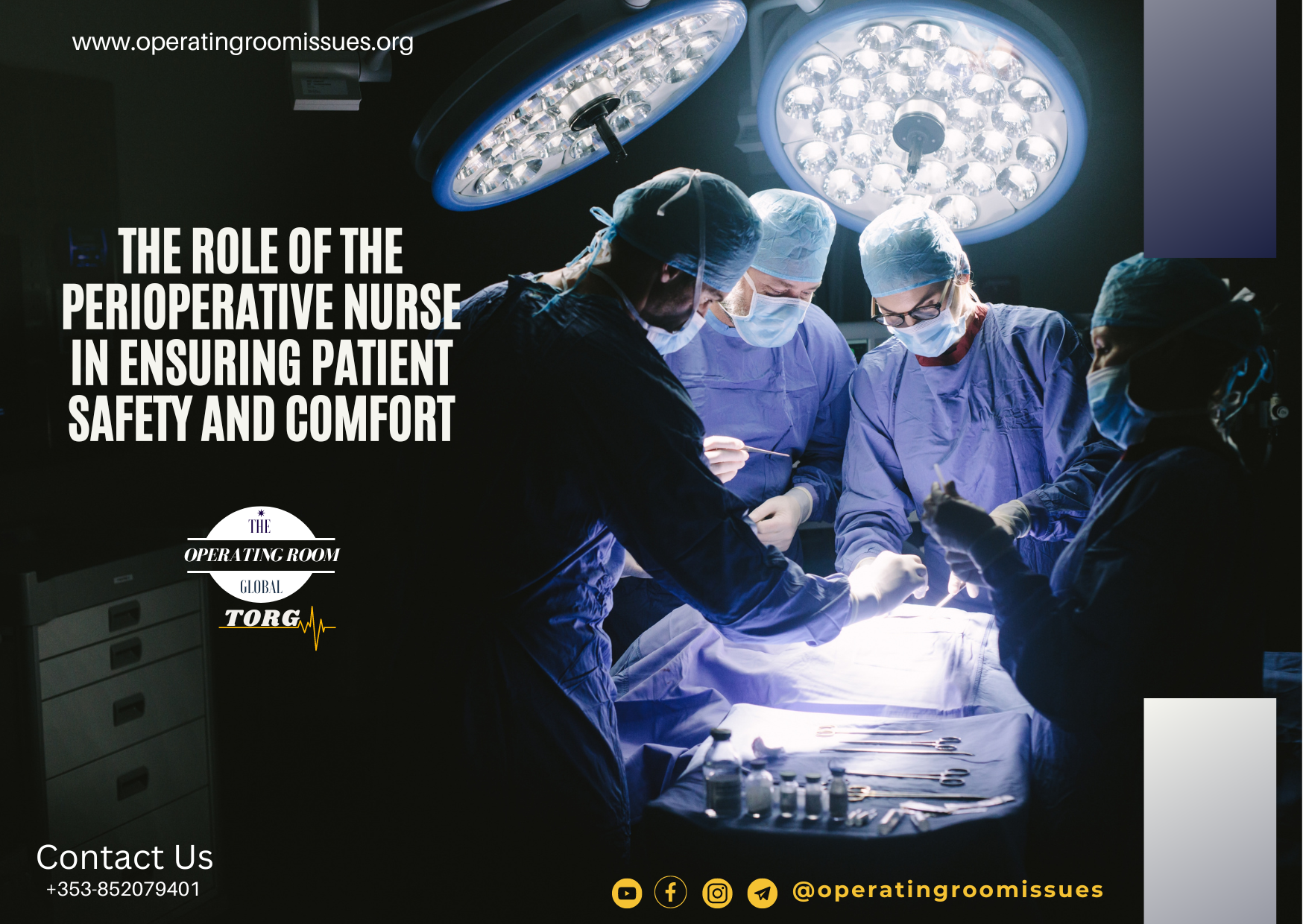By Adebusola Owokole (TORG Founder/President)
The perioperative nurse is an essential member of the healthcare team responsible for ensuring patient safety and comfort before, during, and after surgical procedures. Their role is to provide patient-centered care and to work collaboratively with other healthcare professionals to promote positive patient outcomes. In this blog post, we will discuss the critical role of the perioperative nurse in ensuring patient safety and comfort.
Preoperative Phase:
The perioperative nurse plays a crucial role in the preoperative phase of the surgical process. They are responsible for assessing the patient’s medical history, vital signs, and any allergies or medication reactions. They will also educate the patient about the surgical process and what to expect, answer any questions or concerns, and obtain informed consent.
The nurse ensures that the patient has been adequately prepared for surgery, including ensuring that the patient has fasted appropriately, is clean and dry, and has been given any necessary medications or preoperative tests. The nurse will also make sure that the surgical team has the necessary equipment and supplies to perform the procedure safely.
Intraoperative Phase:
During the surgical procedure, the perioperative nurse is responsible for monitoring the patient’s vital signs, administering medications as ordered, and maintaining a sterile environment in the operating room. They will also assist the surgeon and other members of the surgical team by passing instruments, holding retractors, and maintaining a clear field of vision.
The nurse will monitor the patient’s level of consciousness and pain during the procedure, ensuring that the patient is comfortable and free of pain. They will also monitor the patient’s blood loss and fluid balance, ensuring that the patient remains stable throughout the surgery.
Postoperative Phase:
After the surgical procedure, the perioperative nurse is responsible for the patient’s postoperative care. They will monitor the patient’s vital signs, administer medications, and monitor the patient’s level of consciousness and pain. They will also ensure that the patient is safe and comfortable, assisting with any activities of daily living as needed.
The nurse will monitor the patient for any signs of complications, such as bleeding, infection, or respiratory distress. They will also educate the patient and family about postoperative care, including wound care, medications, and follow-up appointments.
Conclusion:
The perioperative nurse plays a vital role in ensuring patient safety and comfort throughout the surgical process. They work collaboratively with other healthcare professionals to provide patient-cantered care, promote positive outcomes, and ensure that the patient is safe and comfortable before, during, and after the surgical procedure. It is essential to recognize the important role of the perioperative nurse in promoting patient safety and to appreciate their contributions to the healthcare team.

